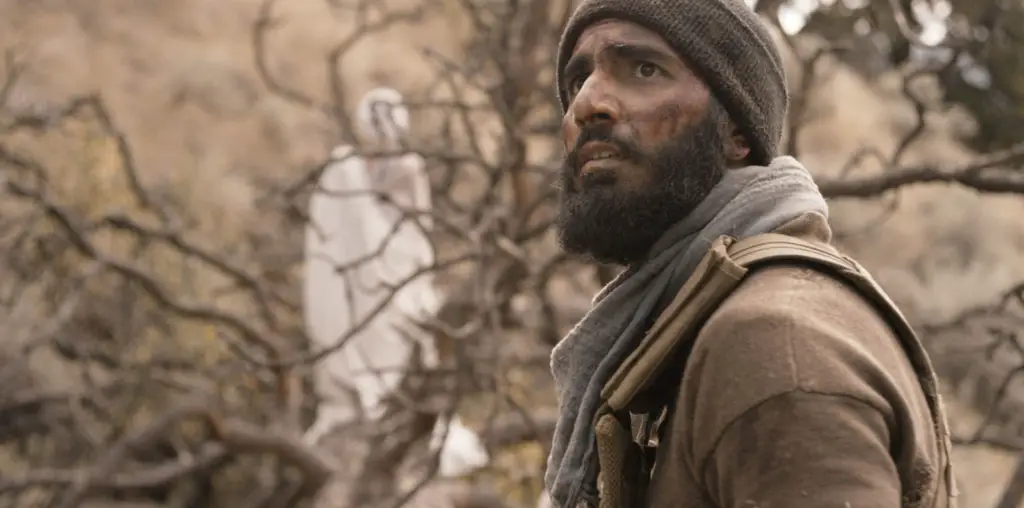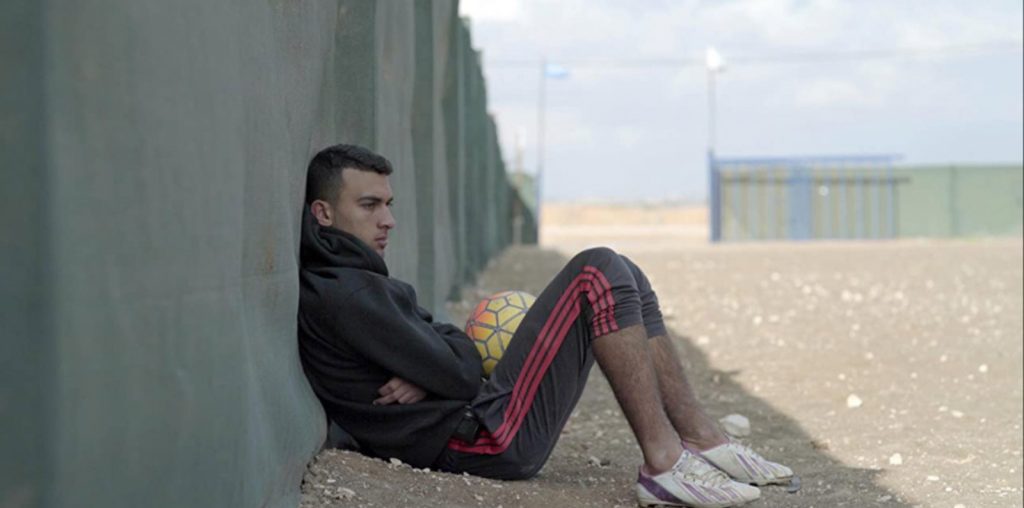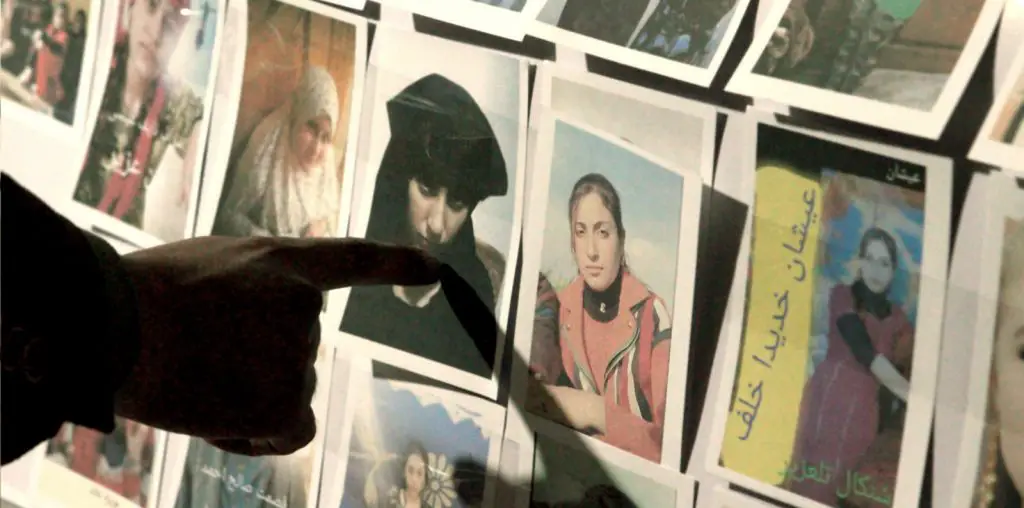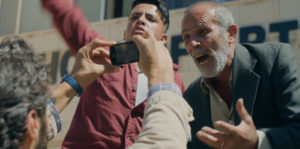
Directors Rana Kazkaz and Anas Khalaf’s The Translator (Le Traducteur) is a dramatic thriller produced in France, with most of the dialogue in Syrian and English. The powerful story opens in 1980 Syria during a massive freedom demonstration in the streets. A young boy listens to the English news of the event while his family chant with the protestors from the balcony. The boy’s father leaves the house to join in when shots ring out. The boy and his brother, Zaid, run out to help their papa, dodging bullets and ducking police. They see their father beaten and thrown into a police van, never to be seen again.
Jump to the Sydney 2000 Olympics. The boy, Sami Najjar (Ziad Bakri), has grown up to be a translator for the Syrian Olympic team. When Moneeb (Ramzi Maqdisi), a Syrian boxer, is asked on TV about the handover of power to Bashar al-Assad after his father, President Hafez al-Assad, died, the athlete says the Syrian people are grieving over the death of their leader. Sami translates this to the reporters. Unfortunately, he makes a gaffe, leading to problems.
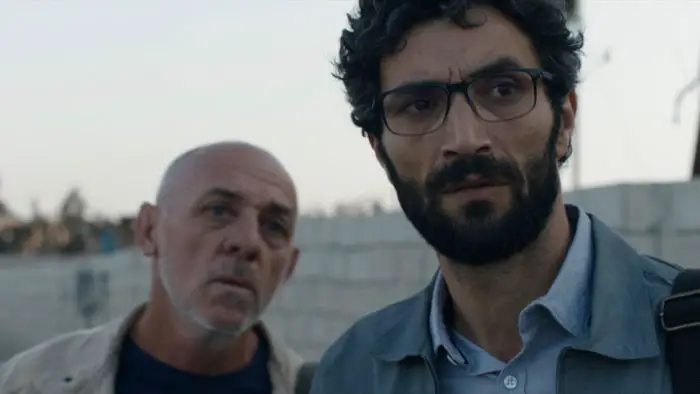
“…Sami hears his brother has been imprisoned for activism…”
Jump ahead to 2011. Sami lives in Australia, having defected from Syria after his televised mistranslation. His fiancé, Julie (Miranda Tapsell), helps him, and journalist Jad (Fares Al-Helou) get videos of renewed demonstrations in Syria on to the news. When Sami hears his brother has been imprisoned for activism, he and Jed go to Lebanon to be smuggled across the Syrian border. Upon arriving, the two find an ungodly nightmare full of secret police, families turning against each other, and a brutal crackdown on the bubbling revolution by the Assad Regime. Will Sami find and free Zaid, or will he perish in a maze of systemic torture?
The Translator (Le Traducteur) is more a thrilling drama than a dramatic thriller. However, you wouldn’t know that once the punches start flying. The story is carried by repeat instances of hyper danger; it does not sag. You will be on the edge of your seat until the security forces remove the seat for questioning. Eric Devin’s excellent cinematography heightens this. He employs a hand-held style that delivers a feeling of immersion in the setting as well as the immediacy of action. The drama stings deep, though, due to the sensational acting by Bakri and the rest of the ensemble. While Devin’s camera makes things look real, the performances feel real. And the hurt travels to the viewer.
The screenplay by Kazkaz and Magali Negroni, based on a story concept by Kazka and Khalaf, focuses on the toll on humanity during this particularly brutal historical period. The viewer does not need to know much, if any background, of Syrian history over the last several decades. The story educates one on the subject without resorting to long diatribes or self-conscious exposition. Using the screen form of the thriller to expose the ghastly realities of a dictatorial regime, The Translator (Le Traducteur) imbues the conscious with emotional explosions. This is an intelligent, well-crafted picture that hits with the power and depth of a nuclear submarine. Those seeking yawns go elsewhere.
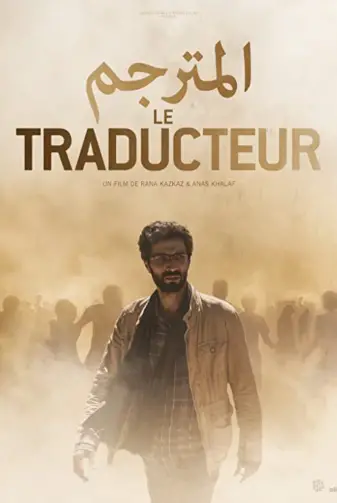
"…hits with the power and depth of a nuclear submarine."
